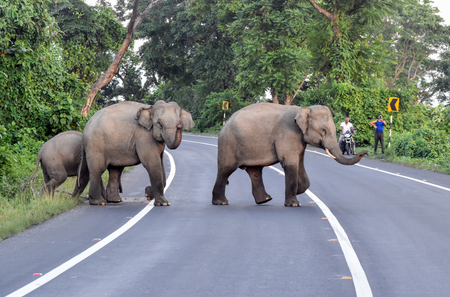Bhubaneswar: Odisha Chief Minister Mohan Charan Majhi Thursday announced that the state will establish the world’s first Centre for Species Survival: Asian Elephant at Godibari near Chandaka Wildlife Division in Bhubaneswar, in collaboration with the IUCN Species Survival Commission, Wildlife Trust of India, and the Columbus Zoo and Aquarium.
The announcement came as Majhi inaugurated a two-day international workshop on Best Practices in Human-Elephant Coexistence in Bhubaneswar, calling for global collaboration to end human-elephant conflict.
“This centre will drive research, policy, and best practices — not just for Odisha, but for all of South and Southeast Asia,” Majhi said. “The initiative has set a new global benchmark in conservation of the Asian elephant. It will serve as a regional hub for advancing science, shaping policy, and driving community action across South-East Asia for elephant conservation.”
The workshop brought together conservationists, researchers, policymakers, and international delegates to discuss strategies for mitigating human-elephant conflict and ensuring sustainable coexistence. Majhi said the challenge was not just to manage conflict but to actively build pathways for coexistence. “The future of the elephant is inextricably linked to the well-being and involvement of the communities who live alongside them,” he said.
He added that elephants, as India’s National Heritage Animal, hold a special place in Odisha’s identity, history, and spirituality. But he warned that the expansion of agriculture and infrastructure growth has reduced traditional habitats, fuelling man-elephant conflict.
Majhi outlined Odisha’s ongoing conservation measures, including mapping elephant corridors, restoring degraded forests, empowering local protection groups such as Gaja Saathi and Vana Surakshya Samitis, strengthening anti-poaching squads, and deploying GPS collars, drones, and AI cameras to track elephant movements. He said Odisha’s vision is to create a development model where elephants roam freely, forests remain healthy, and communities coexist in peace with animals. “This model will inspire the rest of the world,” he added.
Additional Chief Secretary Home, Forest, Environment and Climate Change, Satyabrat Sahu said that the Odisha’s government has implemented a comprehensive strategy to manage the human-elephant conflict. Key measures include:
Habitat restoration and corridor mapping: The state is actively restoring degraded forests and mapping elephant corridors to ensure elephants have space to roam freely.
Community engagement: Local protection groups such as Gaja Saathi and Vana Surakshya Samitis are being empowered to protect elephants and raise awareness within communities. ‘Gaja Saathi’ volunteers, or “friends of elephants,” help track and drive away elephant herds from human settlements.
Technological integration: The state is using technology like GPS collars, drones, and AI cameras to track elephant movement, which helps in early warning and mitigation efforts.
Anti-poaching measures: The government is strengthening anti-poaching squads to safeguard the elephant population.
These initiatives are part of Odisha’s broader vision to create a sustainable development model where humans and elephants can coexist peacefully.
The two-day workshop will feature technical sessions, deliberations, and experience-sharing among experts from across the globe to develop sustainable strategies for human-elephant coexistence.
PNN & Agencies






































